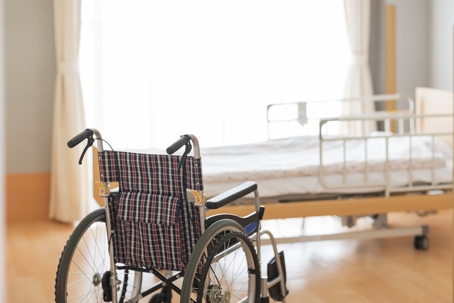Summer is a time when families come together and enjoy visiting loved ones. If you have a family member in a nursing home, these warm-weather visits can bring joy but also present an important opportunity. Beyond sharing memories, it’s crucial to be mindful of their well-being and watch for signs of nursing home neglect.
Unfortunately, neglect in nursing homes does happen, and it can lead to serious health and emotional issues for residents. By knowing what to look for and how to act, you can help protect the well-being of your loved one. Here’s what you need to know to spot nursing home neglect during your visits this summer.
What Is Nursing Home Neglect?
Nursing home neglect happens when a caregiver fails to meet a resident's basic needs. It can involve anything from failing to provide proper food and hydration to neglecting medical care or personal hygiene. Unlike outright abuse, neglect is often subtle and may be harder to detect—but it’s equally harmful.
Neglect can be unintentional, caused by issues like understaffing or lack of proper training, or it can stem from systemic problems within the nursing home itself. Either way, it can lead to serious consequences, including malnutrition, illness, emotional trauma, or even death.
Signs of Nursing Home Neglect to Watch For
Pay close attention to your loved one and their surroundings during your next visit. Here are some common signs of neglect:
1. Physical Signs of Neglect
Certain physical symptoms can indicate your loved one isn’t receiving proper care. Look for these red flags:
Dehydration or Malnutrition
Dry mouth, cracked lips, weakness, or sudden weight loss may signal that they are not getting enough food or fluids.
Bedsores or Pressure Ulcers
These often appear on areas of the body that remain in contact with a surface for long periods, such as the back, heels, or hips. Bedsores can be a sign of being left in one position for too long without care.
Poor Personal Hygiene
Are their clothes clean? Are they bathed regularly? Messy hair, unclean nails, or a strong body odor could indicate neglect.
Unexplained Injuries
Bruises, cuts, or fractures might be a result of falls or rough handling by staff.
2. Behavioral and Emotional Changes
Neglect often impacts a resident’s emotional health. Take note of these changes:
Withdrawal or Isolation
If your loved one seems distant, nonresponsive, or uninterested in talking, they could be withdrawing due to emotional neglect.
Fear or Anxiety Around Staff
If they seem scared or uncomfortable when staff are nearby, it might be a result of mistreatment or neglect.
Mood Swings or Depression
Sudden sadness, anger, or disinterest in activities they usually enjoy could indicate emotional neglect.
3. Environmental Conditions
Don’t just look at your family member; check their living space and overall environment:
Unsanitary Living Conditions
Dirty sheets, unclean bathrooms, or an unpleasant smell should raise alarms.
Lack of Necessary Equipment
Is their walker, wheelchair, or medical equipment in proper condition? Damaged or missing items may suggest neglect.
Overworked or Unresponsive Staff
Observe the staff during your visit. Do they seem rushed, inattentive, or dismissive of concerns? Understaffing is a major contributor to neglect.
Steps to Take if You Suspect Neglect
If any of these signs raise concerns, acting quickly to ensure your loved one’s safety is important. Here’s a step-by-step guide on what to do:
1. Document Evidence
If possible, take detailed notes of what you observe, including dates, descriptions, and staff names. Photos of bedsores, dirty conditions, or injuries can also provide crucial evidence.
2. Speak with Your Loved One
If appropriate, ask your loved one how they feel about their care. Be patient and listen carefully. They may feel hesitant to speak due to fear or confusion, so tread gently.
3. Report Your Concerns
If you suspect neglect, inform the nursing home’s management immediately. They may not even be aware of an issue. If you don’t see prompt action, escalate your complaint to state authorities overseeing nursing facilities.
4. Seek Medical Attention
If your loved one shows any signs of physical harm, make sure they receive medical care as soon as possible. A doctor can document their condition and help address immediate health concerns.
5. Consult a Legal Expert
Finally, consult a personal injury attorney specializing in nursing home neglect cases. They can guide you in pursuing legal action to protect your loved one and hold the responsible parties accountable.
How Legal Support Can Make a Difference
Neglect cases can be complicated, especially when it comes to proving responsibility. Nursing homes often have insurance companies and legal teams working to protect their interests. That’s why having an experienced personal injury attorney by your side is invaluable.
A qualified attorney will:
- Investigate the circumstances of the neglect.
- Review medical records and facility reports for evidence.
- Advocate for fair compensation for your loved one’s suffering.
- Help you understand and act within the legal deadlines for filing a case.
St. Louis Nursing Home Abuse Attorneys
If you’re concerned about the care your loved one is receiving and suspect neglect, it may be helpful to consult experts in personal injury law. NGK Law Firm in St. Louis, MO, can provide you with valuable guidance and support to ensure your loved one’s rights are protected. Don’t hesitate to contact us today at (314) 350-1900 and explore how they can assist you in advocating for the quality care your loved one deserves.







